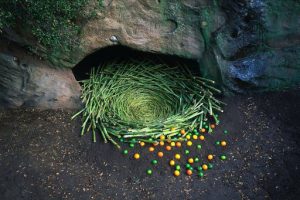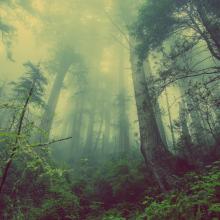 The Yogabliss, Two Rivers/RiverTree Yoga on-line Moving into Meditation classes met this morning. We contemplated how our circle of belonging is so like a forest. We lend each other kinship and support. We grow toward the light. We are planted and nurtured within a web of mutuality. We are part of a spiritual commons created by others who live in memory.
The Yogabliss, Two Rivers/RiverTree Yoga on-line Moving into Meditation classes met this morning. We contemplated how our circle of belonging is so like a forest. We lend each other kinship and support. We grow toward the light. We are planted and nurtured within a web of mutuality. We are part of a spiritual commons created by others who live in memory.
We can be inspired by trees. They are born, survive and give themselves to new life in a vast web of relation. In our practice we can cultivate the deep caring that encompasses the whole web – including future generations.
We drew inspiration from poet Mary Oliver’s poem, When I Am Among the Trees. The poem is from her last collection, Devotions: The Selected Poems of Mary Oliver. Mary invites us to go easy, to fill with light and to shine.
We heard from Irish poet philosopher, John O’Donohue’s Eternal Echoes: Celtic Reflections on Our Yearning to Belong. He believes the hunger to belong is at the heart of our nature. We fail to thrive unless we are nourished by our kinship with the each other and the world.
We ended with poet Carolyn Locke’s query: What Else? This poem is from her collection, The Place We Become. The poem invites us to be filled with light and “improbable hope.”
As you settle on Earth’s body, rest your awareness where breath or physical sensation are most prominent. You can place a hand on this area for a few moments to feel the subtle movement, the warmth of your body, the pulse of your heart. Breathing and feeling arise from our experience of being consciously alive. We sense nature’s animate knowing in our bodies, hearts and minds. We share a spiritual commons. We’ve inherited ancestral wisdom and feel gratitude, wonder and awe. We care deeply about the well being of our world: the human and more than human, our children and their children.
We can contemplate our experience of deep caring. I invite you to think of who you care deeply about. Let your imagination free – that someone can be human, more than human, even a place or a dream. You can visualize these beings, aspirations or places. You can imagine feeling the care and warmth these beings hold for you. How does your body feel in deep caring?
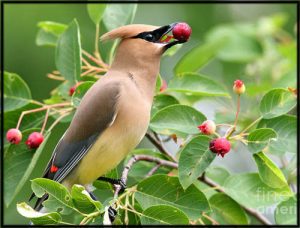 There is a mutuality that arises when we feel and express caring. Often the seeds of appreciation and gratitude blossom as kinship and mutual support. Our spiritual commons is enlivened when we bring our awareness and insight, creativity and resilience to the world. We experience our spiritual commons in holy places – places we hold most dear. The forests of trees that were born before us. The trees that stand through our lives. The trees we hope will continue after we become memory. Our human family is so like a forest family. In decomposition and regeneration the pulse of life continues through lifetimes. Our towering kin invite us to look up and out of ourselves in deep caring. Mary Oliver’s poem, When I Am Among the Trees describes this kinship well:
There is a mutuality that arises when we feel and express caring. Often the seeds of appreciation and gratitude blossom as kinship and mutual support. Our spiritual commons is enlivened when we bring our awareness and insight, creativity and resilience to the world. We experience our spiritual commons in holy places – places we hold most dear. The forests of trees that were born before us. The trees that stand through our lives. The trees we hope will continue after we become memory. Our human family is so like a forest family. In decomposition and regeneration the pulse of life continues through lifetimes. Our towering kin invite us to look up and out of ourselves in deep caring. Mary Oliver’s poem, When I Am Among the Trees describes this kinship well:
When I am among the trees,
especially the willows and the honey locust,
equally the beech, the oaks and the pines,
they give off such hints of gladness.
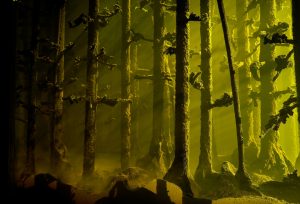 I would almost say that they save me, and daily.
I would almost say that they save me, and daily.
I am so distant from the hope of myself,
in which I have goodness, and discernment,
and never hurry through the world
but walk slowly, and bow often.
Around me the trees stir in their leaves
and call out, “Stay awhile.”
The light flows from their branches.
And they call again, “It’s simple,” they say,
“and you too have come
into the world to do this, to go easy, to be filled
with light, and to shine.”
“We too have come into this world to do this, to go easy, to be filled with light and to shine.”
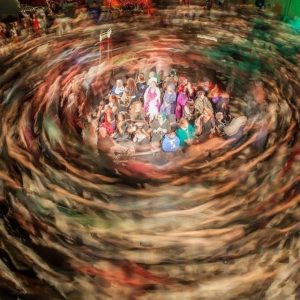 Together we’ve created a space – not unlike a forest – where we come to understand our hearts and minds. We can reflect on what brought us here today – the deeper needs we seek to fill – kinship, healing, solace – rest or inspiration. In his book, Eternal Echoes: Celtic Reflections on Our Yearning to Belong Irish poet and philosopher John O’Donohue writes:
Together we’ve created a space – not unlike a forest – where we come to understand our hearts and minds. We can reflect on what brought us here today – the deeper needs we seek to fill – kinship, healing, solace – rest or inspiration. In his book, Eternal Echoes: Celtic Reflections on Our Yearning to Belong Irish poet and philosopher John O’Donohue writes:
We live in a world that responds to our longing; it is a place where the echoes always return, even if sometimes slowly… The hunger to belong is at the heart of our nature. Cut off from others, we atrophy and turn in on ourselves. The sense of belonging is the natural balance of our lives… There is some innocent childlike side to the human heart that is always deeply hurt when we are excluded… When we become isolated, we are prone to being damaged; our minds lose their flexibility and natural kindness; we become vulnerable to fear and negativity.
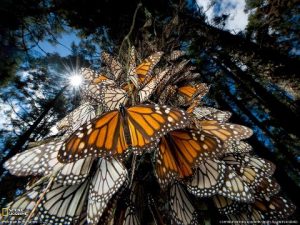 Mindfulness practice rests on the direct experience of our interconnection. Trees grow to wholeness in relationship with each other and become forest. Right now we can recall our most recent experience of belonging. What were the circumstances? Who were we with? What were we doing? What were the emotions that surfaced? The physical sensations in the body?
Mindfulness practice rests on the direct experience of our interconnection. Trees grow to wholeness in relationship with each other and become forest. Right now we can recall our most recent experience of belonging. What were the circumstances? Who were we with? What were we doing? What were the emotions that surfaced? The physical sensations in the body?
In mindfulness practice we begin with awareness. So often sensation, emotion and thought signal an underlying need. These signals – these unmet needs – can be uncomfortable – even distressing. Can we stay present long enough to allow the awareness of our inner needs to surface? Long enough to recognize that the person with whom we are relating is also experiencing needs. Which brings us back to John O’Donohue’s words: “The hunger to belong is at the heart of our nature.”
There is a lovely balance at the heart of our nature: each of us is utterly unique and yet we live in the most intimate kinship with everyone and everything else… Our hunger to belong is the desire to awaken this hidden affinity.
 In kinship we are challenged to accept otherness. This includes the otherness we make within ourselves – our conditioning, our stories, our shadows. This includes the otherness we make of each other: the assumptions, the ideas, the misperceptions that we are often unaware of.
In kinship we are challenged to accept otherness. This includes the otherness we make within ourselves – our conditioning, our stories, our shadows. This includes the otherness we make of each other: the assumptions, the ideas, the misperceptions that we are often unaware of.
In relating – however imperfectly – what is unconscious can be revealed. If we can bring a willingness to stay engaged, even what is hidden can grow to the light.
We can learn from our kinship with trees. Poet Carolyn Locke asks “What Else?”
 The way the trees empty themselves of leaves,
The way the trees empty themselves of leaves,
let drop their ponderous fruit,
the way the turtle abandons the sun-warmed log,
the way even the late-blooming aster
succumbs to the power of frost—
this is not a new story.
Still, on this morning,
the hollowness
of the season startles, filling
the rooms of your house, filling the world
with impossible light, improbable hope.
And so, what else can you do
but let yourself be broken
and emptied? What else is there
but waiting in the autumn sun?

